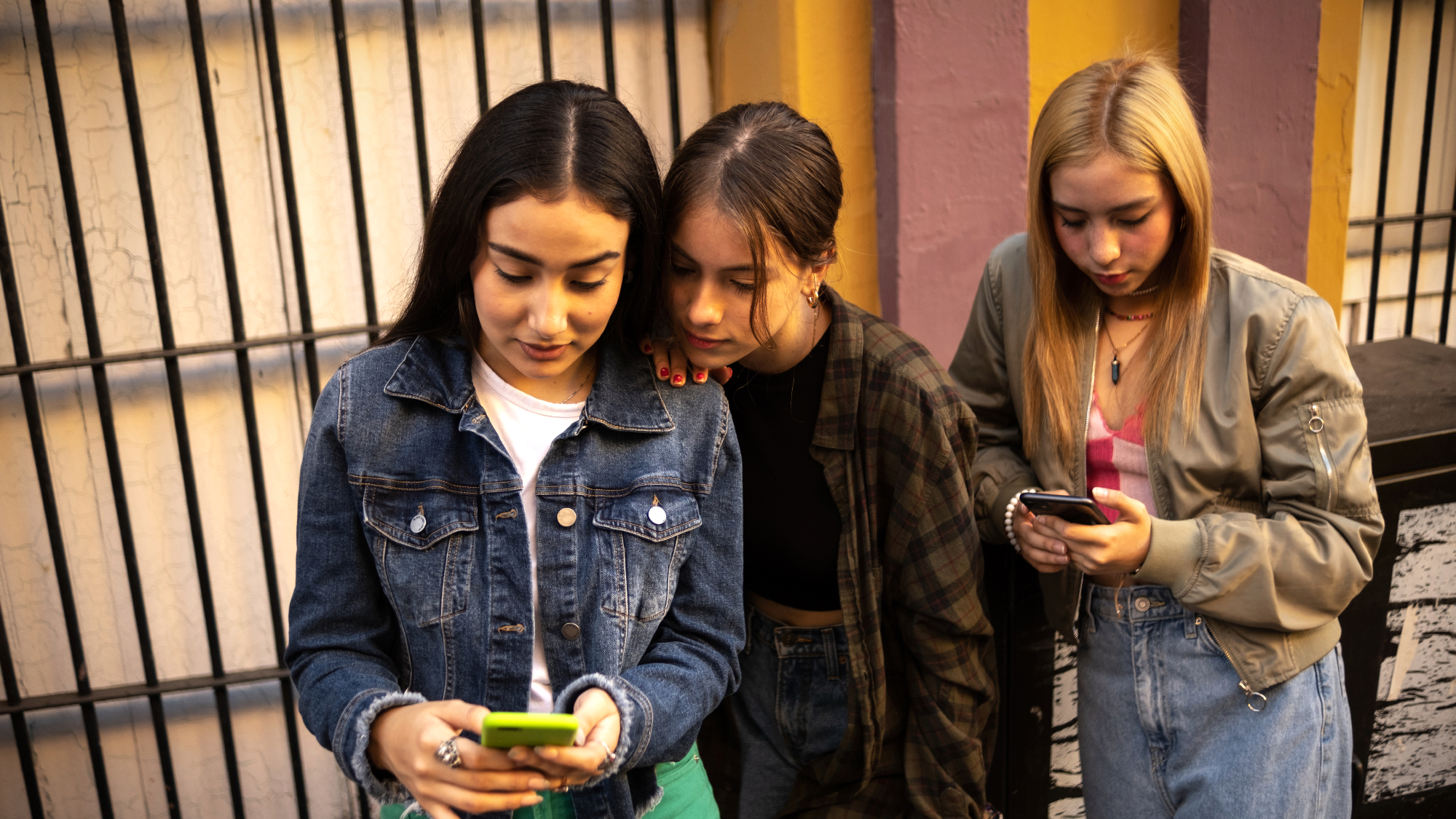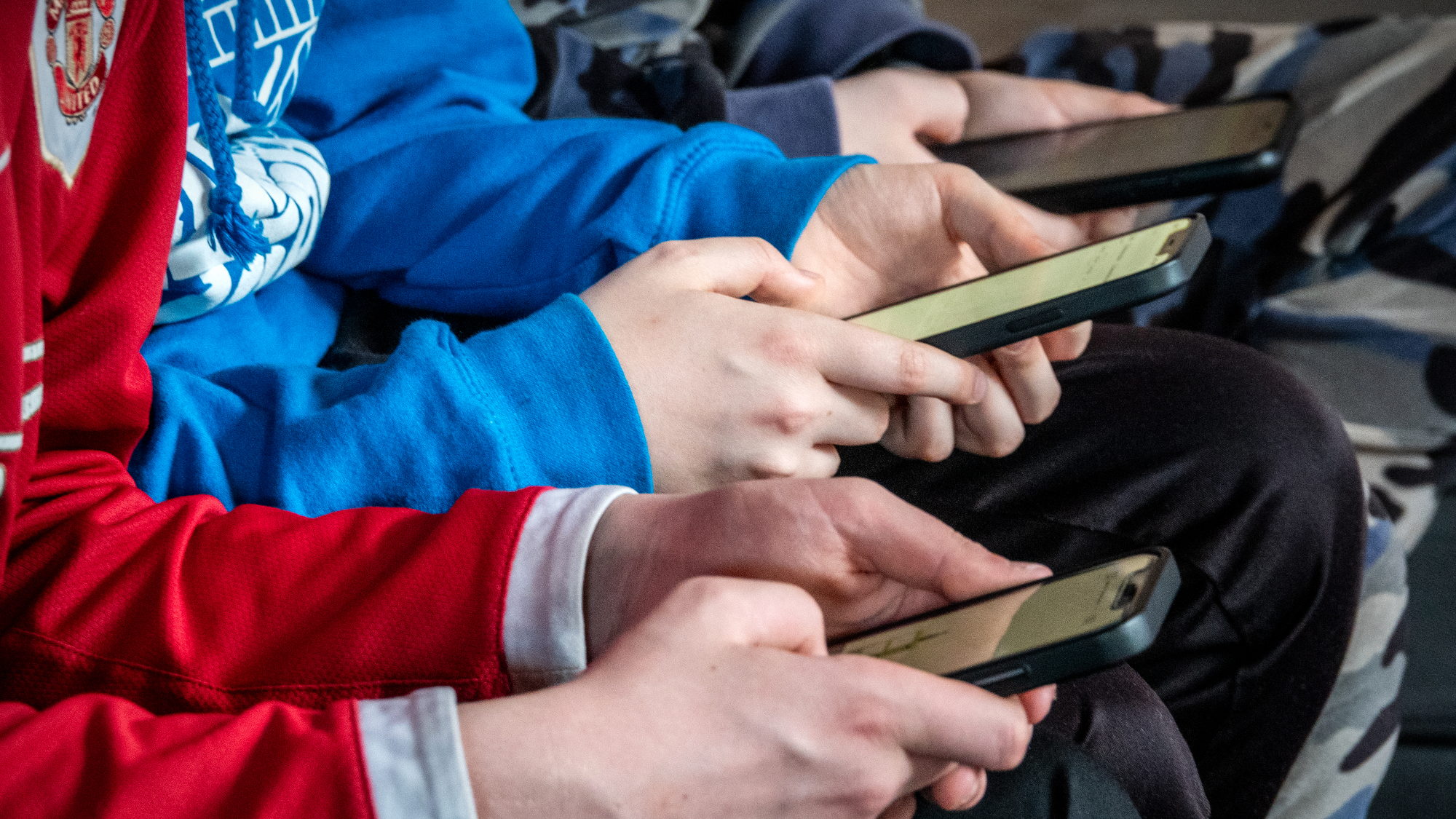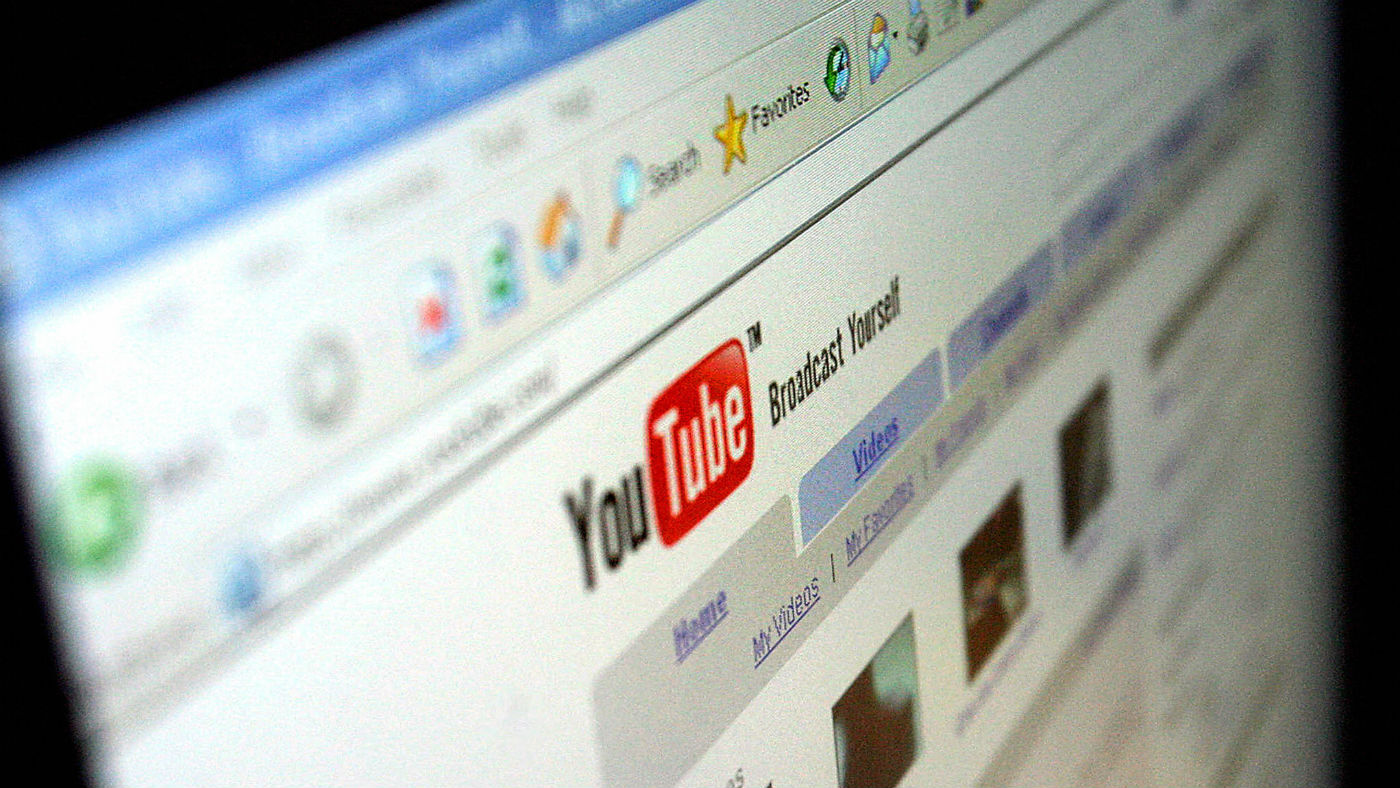Generation Alpha: the new kids making Gen Z feel old
The next generation of children are on the cusp of becoming teenagers – and are making their presence felt

A free daily email with the biggest news stories of the day – and the best features from TheWeek.com
You are now subscribed
Your newsletter sign-up was successful
Move over, Gen Z; there are new kids on the block, and they come armed with their own, nonsensical memes. Generation Alpha, the oldest of whom are not even teenagers yet, are starting to make their presence felt and are catching the eye of marketers in the process.
Who are they exactly?
Gen Alpha are the demographic group born between 2010 and 2025. While some of them have not even arrived in the world yet, it is thought they will number around 2.2 billion by 2024. The oldest are tweens – children aged from 10 to 12 – who are just starting to arrive at secondary school.
The first wave of Gen Alpha will reach adulthood by 2030 and many of them will live to see the 22nd century, according to the Australian social researcher, Mark McCrindle, who coined the term Generation Alpha.
The Week
Escape your echo chamber. Get the facts behind the news, plus analysis from multiple perspectives.

Sign up for The Week's Free Newsletters
From our morning news briefing to a weekly Good News Newsletter, get the best of The Week delivered directly to your inbox.
From our morning news briefing to a weekly Good News Newsletter, get the best of The Week delivered directly to your inbox.
Gen Z, meanwhile, refers to those born between 1997 and 2012, those aged 11-26. Millennials, also known as Gen Y, are those born between 1981 and 1996, and are quite likely to be the parents of Gen Alpha.
Going even further back, Gen X are those born from 1965-1980, Baby Boomers were born from 1946-1964 and the Silent Generation were born between 1928 and 1945.
How are they characterised?
Gen Alpha are the first group to all be born in the 21st century. Also known as ‘Generation Glass’, they are overwhelmingly defined by their proximity to technology, and in particular their obsession with YouTube. More kids watch YouTube than TikTok, Disney+ and even Netflix, according to Insider Intelligence.
It’s not surprising they are so immersed in the digital world; the first Gen Alpha births were in 2010, the same year as the launches of Instagram and the iPad.
A free daily email with the biggest news stories of the day – and the best features from TheWeek.com
Gen Alpha are also the pandemic generation. They are the “Covid babies, students who did school on Zoom and met family members on FaceTime, with an early media diet that slaloms through the endless scroll”, said Anna Cafolla in Dazed.
Makua Adimora, a behavioural analyst at consumer insights agency Canvas8, told Metro that Gen Alphas have “unique barriers to catching up on their development” as a result. More than half (52%) of British parents of children aged between two and four say their development has been negatively affected by the Covid lockdowns experience.
What are these nonsensical memes?
Perhaps unsurprisingly, Gen Alpha are increasingly coming up with their own memes, according to Insider. One in particular, “Skibidi Toilet”, has unsetted Gen Z.
Skibidi Toilet is an animated YouTube series about singing and dancing toilet-like creatures that want to take over the world. Its creator goes by the YouTube username “DaFuq!?Boom!” and has more than 23 million subscribers, while most of their “Skibidi Toilet” videos have between 20 million and 46 million views.
Many Gen Z users have commented that they don’t understand the memes, and that they’re making them feel old. One user, @thehannahmichelle, took it as a sign that Gen Z was “the next cringe generation on the chopping block”.
What does the future hold for Gen Alpha?
McCrindle predicts that this group will delay more conventional milestones in life, such as marriage and childbirth – based on previous generational trends. “They will live longer and have smaller families, as well as being the most formally educated, technology-supplied and wealthiest generation globally ever,” Dazed said.
Generation Alpha might disagree. “For them, getting older means unlimited PlayStation, driving, owning their own houses, having kids, having boundless job opportunities and travelling the world,” said Dazed.
They are also the generation who will feel the effects of a heating planet and more extreme weather. It is something they are already keenly aware of, with the impact on animals (27%), plastic pollution (19%) and increasing temperatures (19%) the top three environmental concerns among seven- to 12-year-olds, according to research reported by the Yorkshire Evening Post. Climate change also determines their role models, with David Attenborough the most popular role model, followed by teachers, parents or another family member, and Greta Thunberg.
Not only that, but they are also contending with a cost of living crisis, inflation, the rise of new social movements and the crumbling of old institutions. “They’re children caught in the crossfire,” said Dazed.
Should we be worried?
“Thus far, it has been predicted that Alphas will be tech fluent, screwed up by the pandemic, fat, impatient and allergic,” said Hannah Betts in The Telegraph. But some will question how useful it is to assign labels to this generation when some haven’t been born yet. “Surely it is unfair to do this when their activities centre on potty training and Paw Patrol,” said Betts.
And many point out that their pandemic experience has already taught Generation Alpha resilience and empathy. McCrindle remains positive. “The thrill of life is taking steps to address the issues, innovate and bring solutions. And Generation Alpha will do precisely that,” he told Romper. “They will see with fresh eyes, and bring different thinking and their generation’s unique perspective.”
Felicity Capon is senior editor of The Week Junior, where she oversees the magazine’s international news section. She was the title’s editor for several years, during which she was shortlisted for the BSME Fiona Macpherson Best New Editor award. She also appeared on The Emma Barnett Show on Radio 5 Live, The Sarah Brett Show and the Media Masters podcast. She is a regular contributor to The Week Unwrapped podcast, and has written for The Week, The New Statesman, The Times, The Telegraph and Newsweek.
-
 ‘Poor time management isn’t just an inconvenience’
‘Poor time management isn’t just an inconvenience’Instant Opinion Opinion, comment and editorials of the day
-
 Bad Bunny’s Super Bowl: A win for unity
Bad Bunny’s Super Bowl: A win for unityFeature The global superstar's halftime show was a celebration for everyone to enjoy
-
 Book reviews: ‘Bonfire of the Murdochs’ and ‘The Typewriter and the Guillotine’
Book reviews: ‘Bonfire of the Murdochs’ and ‘The Typewriter and the Guillotine’Feature New insights into the Murdoch family’s turmoil and a renowned journalist’s time in pre-World War II Paris
-
 Are Big Tech firms the new tobacco companies?
Are Big Tech firms the new tobacco companies?Today’s Big Question A trial will determine whether Meta and YouTube designed addictive products
-
 The dark side of how kids are using AI
The dark side of how kids are using AIUnder the Radar Chatbots have become places where children ‘talk about violence, explore romantic or sexual roleplay, and seek advice when no adult is watching’
-
 Australia proposes social media ban before age 16
Australia proposes social media ban before age 16Speed Read Australia proposes social media ban before age 16
-
 States sue TikTok over children's mental health
States sue TikTok over children's mental healthSpeed Read The lawsuit was filed by 13 states and Washington, D.C.
-
 Instagram rolls out teen accounts with new limits
Instagram rolls out teen accounts with new limitsSpeed Read After facing pushback over child safety, Meta announced that all users under 18 will have their Instagram accounts modified
-
 YouTuber Trevor Jacob facing prison over deliberate crashing of plane for views
YouTuber Trevor Jacob facing prison over deliberate crashing of plane for viewsSpeed Read US prosecutors said the influencer ‘did not intend to reach his destination’
-
 The Supreme Court, Section 230 and the future of the internet
The Supreme Court, Section 230 and the future of the internetfeature Lawsuits brought against tech giants could have far-reaching consequences for the internet as we know it
-
 Seven-year-old revealed as YouTube’s highest paid star
Seven-year-old revealed as YouTube’s highest paid starSpeed Read Ryan from Ryan Toysreview channel collected more than £17m this year